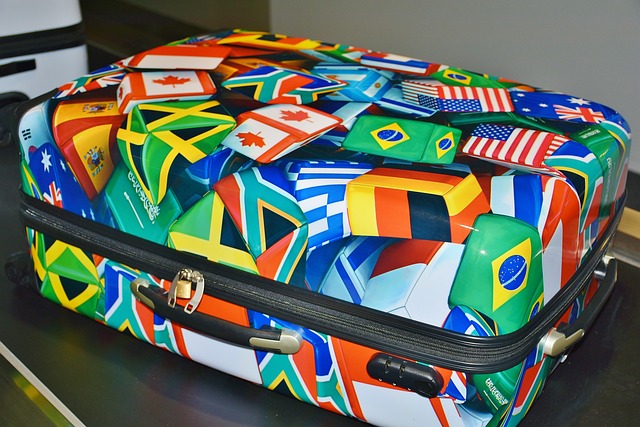Comparing Ticket Options and Refund Policies Across Carriers
Understanding how different carriers handle ticketing and refunds helps travelers plan itineraries with fewer surprises. This article outlines common fare categories, refund and rebooking rules, compensation for delays, baggage and accessibility considerations, and real-world pricing comparisons across several well-known carriers to inform travel decisions.

When travelers evaluate ticket options and refund policies across carriers, the differences can affect itineraries, total trip cost, and recovery options after disruptions. Ticketing structures range from strict non-refundable basic fares to fully flexible tickets with refundable options. Refund pathways and claims processes vary by carrier and jurisdiction, so knowing how farepolicy, insurance, and passengerrights interact with schedules and connectivity is essential for smoother travel.
Ticketing and farepolicy
Ticket classes and the underlying farepolicy determine whether a ticket is refundable, transferable, or changeable without penalty. Carriers typically sell a mix of non-refundable low-cost fares and higher-priced flexible fares that allow rebooking or refunds. Ticketing systems will list fare rules at purchase; these should include blackout dates, rebooking windows, and any administrative fees. For multi-leg itineraries, the strictest segment’s rules often govern the whole ticket, so review connectivity and layover protections before booking.
Refunds and claims
Refund processes differ by provider and by whether the ticket was purchased directly or through an agent. Refunds for refundable fares are usually straightforward but can take several weeks to process. Non-refundable fares may offer vouchers or partial refunds when cancellations are due to carrier-initiated schedule changes. Filing a claim requires ticketing information, proof of purchase, and documentation of the reason for a refund request; keeping receipts and itinerary records streamlines claims and interactions with customer service.
Delays, rebooking, and compensation
When delays occur, carriers may offer rebooking on later flights, meal or hotel vouchers, or monetary compensation depending on the length of delay, cause, and local regulations. Rebooking policies often prioritize same-day alternatives on the carrier’s own network — connectivity with partner carriers varies. Compensation rules differ globally: for example, some regions mandate compensation for long delays, while others leave remedies to airlines’ published policies or voluntary insurance coverage.
Itinerary, schedules, and connectivity
A coherent itinerary depends on reliable schedules and connectivity between legs. Low-cost carriers sometimes sell separate tickets for connecting flights without protection for missed connections; full-service carriers often protect the entire ticketed itinerary. When building complex routes, consider minimum connection times, alternate routing options provided by the carrier, and whether codeshare or interline agreements apply. These factors influence rebooking flexibility and potential claims if a connection is missed.
Baggage, accessibility, and passengerrights
Baggage rules, accessibility services, and passenger rights are part of the customer experience and affect claims. Baggage allowances and fees are typically tied to fare class; low-cost tickets may carry additional charges. Accessibility services are regulated and carriers must provide reasonable accommodations, with specific procedures for advance requests. Passengerrights frameworks vary by country and can mandate care, refunds, or rerouting in certain disruption scenarios — familiarize yourself with local protections in your area.
| Product/Service | Provider | Cost Estimation |
|---|---|---|
| Basic Economy (non-refundable) | Delta Air Lines | $99–$300 (domestic short-haul) |
| Main Economy (limited change) | American Airlines | $120–$350 (domestic short-haul) |
| Flexible/Refundable Economy | United Airlines | $200–$600 (domestic, refundable) |
| Low-cost non-refundable fare | Southwest Airlines | $80–$280 (no change fees, fare difference applies) |
| Low-cost European basic fare | Ryanair | €20–€120 (non-refundable, no frills) |
Prices, rates, or cost estimates mentioned in this article are based on the latest available information but may change over time. Independent research is advised before making financial decisions.
Pricing insights and insurance
Real-world pricing reflects route, seasonality, and how much flexibility a traveler needs. Basic fares cost less but often exclude refunds, rebooking without fees, and checked baggage. Mid-tier fares typically allow limited rebooking with a fee and may include one checked bag. Fully refundable fares or flexible tickets command a premium and can save time and stress when itineraries change. Travel insurance can cover certain cancellation reasons and delays, but policy terms differ, so check exclusions, claim deadlines, and whether insurance covers missed connections on separately ticketed segments.
Global considerations and passengerrights
Regulatory environments shape what passengers can expect: regions may require compensation, assistance, or refunds for lengthy delays or cancellations. For international travel, consider how bilateral agreements, visa rules, and local consumer protections affect claims and refunds. Accessibility and connectivity also vary — research local services or carrier accessibility statements to ensure that itinerary choices meet specific needs.
In summary, comparing ticket options and refund policies across carriers requires attention to fare rules, how refunds and claims are processed, and the protections offered for delays and missed connections. Combining a clear itinerary with an understanding of farepolicy, insurance coverages, and the specific passengerrights applicable to your journey helps reduce uncertainty and improves the chances of a satisfactory resolution when plans change.






